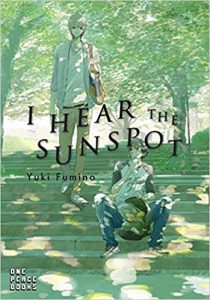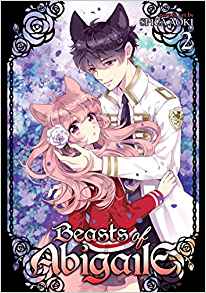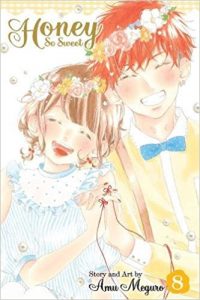Idol Dreams Volume 4, by Arina Tanemura
I’m always up for any Arina Tanemura manga, but I do spend a great deal of time while I am reading Idol Dreams mentally preparing for disaster to strike, as the storyline of a hapless editor with no self confidence and few social skills reliving her teen years as an aspiring idol singer named Hikari with the help of magic pills just seems fraught with traumatic situations. This volume definitely went somewhat into the danger zone, as Chikage in her 15 year old persona decides to go out on at date with her fellow teen idol Ru. The volume opens with Chikage telling Tokita all about her teen romance plans, and he doesn’t point out the inherent problems of Chikage dating someone half her age very strongly, but he does ask the pointed question, “Are you going to tell him that you’re actually 31?” GOOD QUESTION TOKITA!
Chikage is nervous about her upcoming date and gets some tips from one of her coworkers. Quite frankly, as a reader, I was nervous about this date too as it seems like a horrible idea, but my anxiety was blunted somewhat when Ru decided to cross dress so his fans wouldn’t recognize him. Chikage and Ru go out, looking like a couple of girlfriends. Really, the only possible happy ending for this manga is for Chikage to not emotionally damage any of the teenagers she’s hanging out with, and gain enough confidence to actually become a functional adult. There are some slight signs of progress with her adult life in this volume, as she shows how adept she is at dealing with an editorial emergency at work.
As Chikage learns more about Ru, she realizes that she can’t continue to go out with him, but she chooses to break up with him in a particularly cruel way. Chikage’s lack of emotional intelligence is leaving plenty of distress in her wake, but I’m not sure if she realizes what she’s doing. I do miss Tanemura’s more teenage-centric manga, but I’m certainly curious about what will happen next in Idol Dreams.





Recent Comments